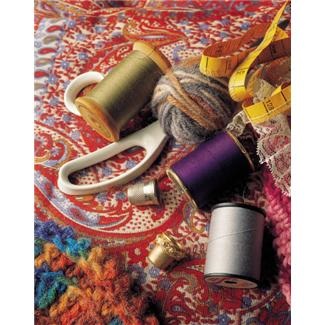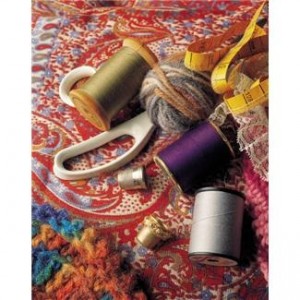
What does stress have to do with kids and a messy house? Everything!

Over four years ago I had surgery to remove an aneurysm from behind an eye that was causing diplopia or double vision. During the operation, the surgeon let the blood bleed back into my brain, causing a massive stroke. Since the stroke, my home has become messier and more cluttered than I can tolerate and the stress is almost unbearable.
Several years ago I sat in my Parents Anonymous meeting and listened to Charlotte* talk about her efforts to save the world by recycling and running a small business at the same time. Charlotte was one of the sweetest people you could ever meet and she had countless talents in the crafts department. She also had a common problem; she couldn’t throw anything away; keeping scraps of cloth, yarn, felt, rope, clothing, nails, screws, screening, stuffing, lamps, pillows, used tin foil, stuffed animals, health & beauty aids bargains, coupons, crepe paper rolls, used paper plates, furniture, etc. (There isn’t enough room or time to complete the inventory!)
Why hang on to all that stuff? Like many of the rest of us, we think we will need it one day. Charlotte devoted herself to finding a home for anything and everything rather than discarding. Driving on a busy highway, Charlotte stopped to pick up an old kitchen chair; the joints were loose and woven cane seat needed replacing. Her thought, “I’ll just fix the seat and glue the joints and then I will give it to someone who needs it.” The chair had found a (forever) home.
Charlotte said she would start to clean her house and then think about the landfills… and recycling… and repurposing. You could feel her exhaustion just talking about it! Since the mess affected Charlotte so dramatically, imagine the effect on her children. Her daughters always had the best costumes or school projects but the remnants became additions to the ever growing piles and stacks of things that could not be thrown away. Charlotte learned my mantra the hard way: “After a while, you don’t own the stuff; the stuff owns you.”
Children learn early on what embarrassment feels like and will do almost anything to avoid it. Children of messy, cluttered homes try to avoid having friends in their homes or insist on going elsewhere. They may even make up excuses or lie— anything— just so no one sees the mess. Like it or not, the stress takes a toll on kids too. The end result is that these children miss out on much of their childhood. I wonder— do these children develop hoarding tendencies too? That, I don’t know.
Has this ever happened to you? You keep things— electrical tape, screws, rope, cloth, yarn— thinking you may need it someday and it will save you money. You search for hours (or days) and that $1.49 roll of tape you can’t find is driving you nuts. After you buy the tape and use a six-inch length, you suddenly remember it was in your trunk all along. The fact is that storing and keeping that item may end up costing more in the long run. It costs you valuable time putting it, moving it, looking for it and depending on its size, money to heat in winter and air condition in summer. Imagine that one item and multiply it by the number of items you keep. Storing and managing x items = stress.
What can parents do to change this pattern of behavior? First, start slowly. It could begin by committing to take out twice as much as you bring in. For example: One plastic grocery bag full comes in, two bags full must leave. Buy one magazine, get rid of two. Make sure you are not moving things from room to room by setting aside a space in each room for ‘Keeping.’ Toss things that are broken or need repair. Donate as much as you can to local charities, give things away or throw them in the trash. You may be able to put items at the curb for a short time; be sure to post a “FREE” sign. Get rid of any clothing that doesn’t fit or that you haven’t worn in a year. Collections of all sorts can add to clutter; keep only the best examples to trim down and get rid of excess.
With my limited abilities, what am I going to do about my messy office? I will start slow, maybe a few hours a week. My plan is to tackle small areas in the same way I recommend with shredding, discarding and donating. In a few months I should be able to move freely in my office and decide what comes next.
Below are a few resources for donating or getting rid of things:
Magazines
Take magazines with you to every doctor appointment and leave them for others to enjoy.
Toys
Take clean, usable toys and donate them to pediatricians’ offices. Throw away germ filled stuffed animals, every sick kid has hugged one.
www.Freecycle.org
Post items to give away freely online, no money changes hands and people will come and pick up items. There is no tax deduction but you have the privilege of helping people in your county.
www.PickUpPlease.org
Benefits veterans, they pick it up and give you a tax donation receipt.
www.Use.SalvationArmy.org
Drop off or have them do a pick-up, must be itemized for a tax donation receipt (helpful list online).
www.CraigsList.org
Simple and free classifieds are an option for moving clutter. Be sure to become familiar with CraigsList how-tos and safety suggestions.
Consignment
Google “consignment shops (your town or county)” for shops in your area. Ask their policy before you invest your time.
There is a big difference between a little messy now and then and serious hoarding behavior. If you or someone you love needs help, reach out. The Parents Anonymous motto is “Asking for help is a sign of strength.”
*All names are changed to protect their privacy.
Talk with a Volunteer or Find a Group in New Jersey:
Family Helpline
1-800-843-5437 or 1-800-THE-KIDS
Parents Anonymous® of New Jersey, Inc.
Phone: (609) 585-7666
Fax: (609) 585-7686
E-mail: PANJInfo@PAofNJ.org
Website: www.PA-of-NJ.org